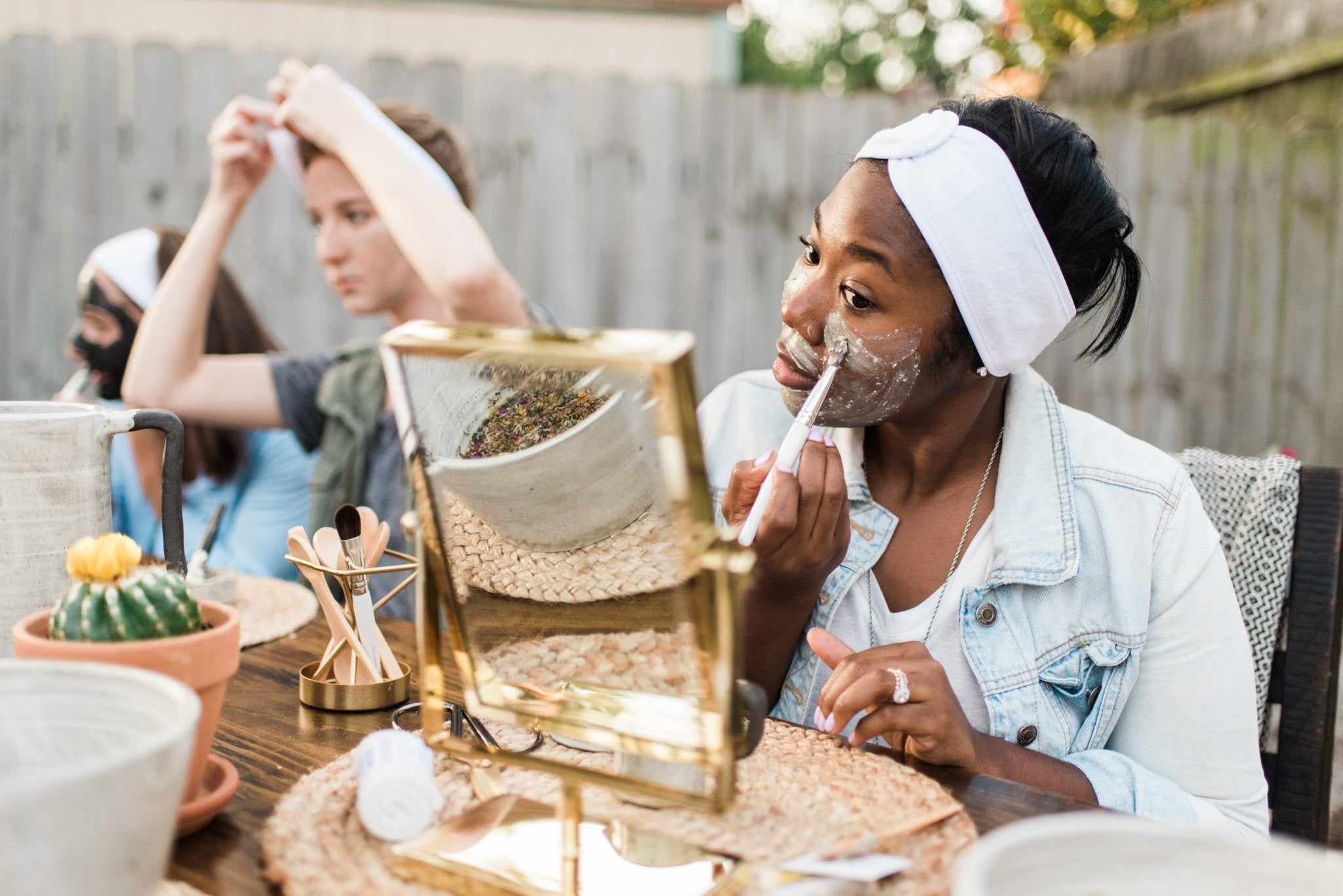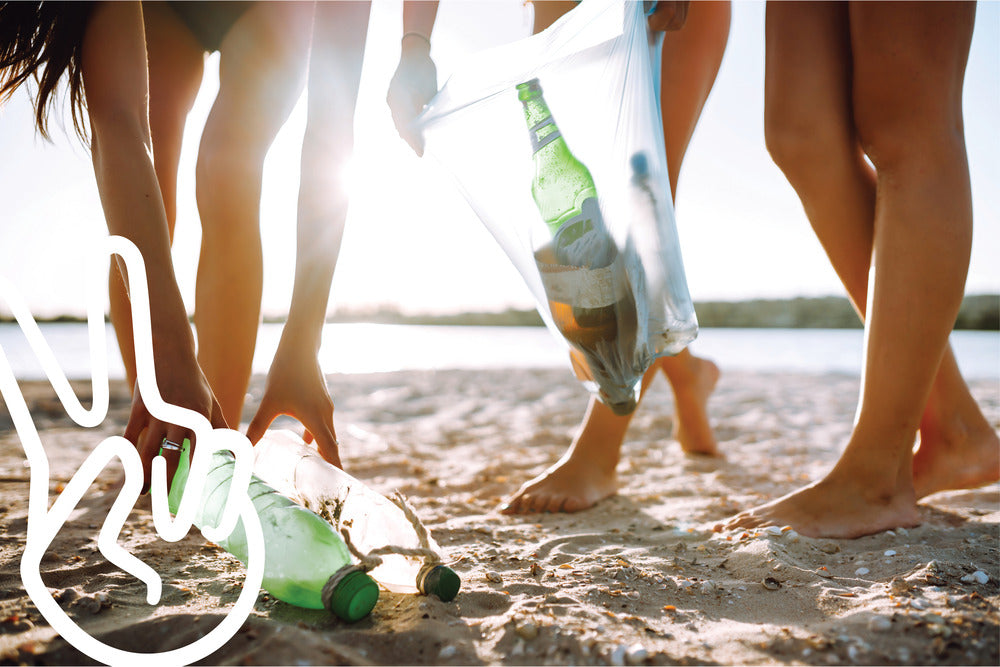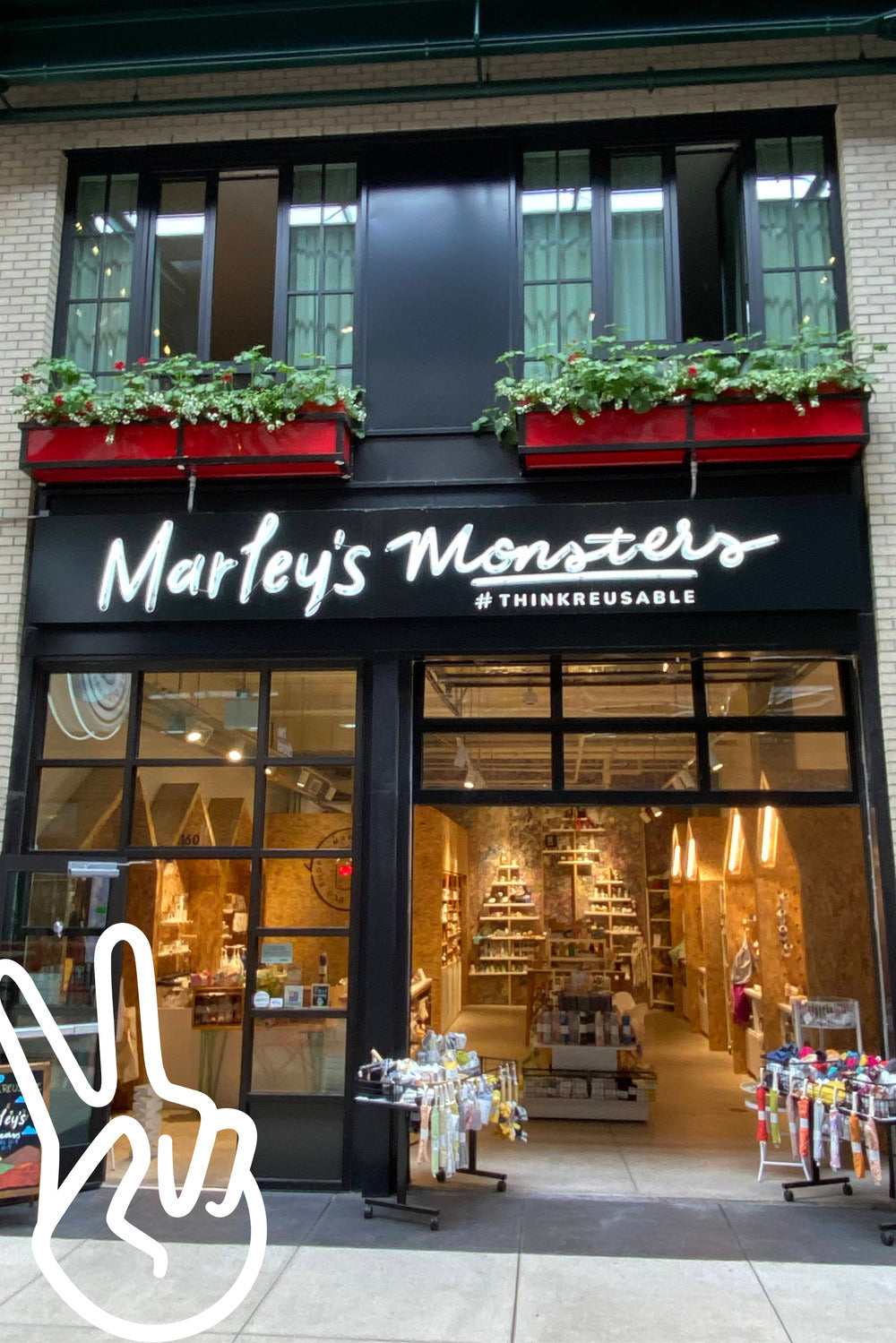We all pretty much have a routine when it comes to getting ready for the day or getting ready for bed. Usually, skin care is somewhere in the mix. But so often skin care products are packaged in plastic or designed for single use. So we put together a list of tips, tricks, and our favorite sustainable items to make your skin care routine a little more eco friendly.

1. Removing Makeup without the Plastic
Single use beauty items like makeup wipes are so commonplace now that we hardly look twice at them. But did you know that not only are makeup wipes bad for the environment as they are made out of plastics, but they’re not particularly good for skin either? They often contain high amounts of alcohol that can burn and dry skin, and these wipes do not thoroughly clean dirt and makeup. Instead, try Makeup Remover packaged in a glass bottle, and a Makeup Towel. Our Makeup Towel is made with two layers of luxurious black cotton chenille and sewn on only three sides to allow the Towel to be used as a mitt. It can be flipped inside out to use the scrubbier side for tougher areas. You can also use this towel with your favorite face wash. The best part is, you can add it right into your laundry and use it again and again.

2. Getting a Good Clean
Making sure your skin is thoroughly cleansed is one of the most important parts of a skin care routine. But take a close look at the ingredients in your cleanser. For example, the exfoliating microbeads that some products boast are actually microplastics that wash down the drain and into ecosystems. However, there are tons of eco friendly alternatives available. For more of a mask, try Urban Oreganic’s Cleansing Grains, a soap-free daily facial cleanser that washes away dirt and impurities. Made with gentle raw grains and clay, this natural cleanser exfoliates and protects dry and aging skin. Simply add a couple drops of water to these organic cleansing grains as part of your daily skin care regimen for soft, clear skin.
Plastic packaging is a major part of pollution, but more brands are starting to offer products in solid or bar form, meaning less packaging waste. For example, try a Face Wash Bar by Meow Meow Tweet, and get a good deep clean without the plastic. For an extra scrub, add in a Konjac Sponge. Konjac Sponges are made from the plant fiber of Konjac, which grows in Japan. They contain natural, positive minerals and antioxidant ingredients like vitamins, proteins, lipids, fatty acids and natural minerals such as copper, zinc, iron and magnesium. These ingredients help nourish and smooth skin naturally, even without an added face wash.

3. Final Touches
After cleansing, most people have a few more steps to complete in their skin care routine. Whether you’re applying a toner, cream, or serum, reach for Facial Rounds. Facial Rounds are the perfect sustainable alternative to single use cotton balls, and can be washed and reused. They come in a variety of colors and prints, and are very versatile. Facial Rounds can also remove makeup or nail polish, or even condition cast irons and polish bamboo in the kitchen!
Our favorite toner to apply with Facial Rounds is a Rosewater Toner by Urban Oreganics. Whether your skin is oily, dry, or combination, this skin-brightening rosewater toner is for you. Use this toner after cleansing and before moisturizing. By removing impurities and dirt left on your skin after cleansing, this toner leaves your pores tight and prepares your face to fully absorb a moisturizer. This Rosewater Toner is packaged in a 4 ounce glass bottle that you can reuse, recycle, or return to Urban Oreganics. If you use a moisturizer and it’s time to restock, look for alternatives packaged in glass, or look for a solid moisturizing bar. Several brands have launched different types of solid form moisturizer.
Just as we care for the environment, it’s important to care for ourselves too. Our skin is our largest organ, and it absorbs everything we touch, which is why it’s so crucial to evaluate the products we use. No matter how long or short your skin care routine is, remember to double check packaging, try to ditch single use products and opt for reusables, and repurpose, recycle, or return empty containers when possible! Maybe this is also a chance to try your hand at some DIY skin care recipes. Experiment and have fun with sustainability, everyone’s journey looks different. What else is involved in your sustainable skin care routine? Reach out and let us know! We’d love to hear from you.



